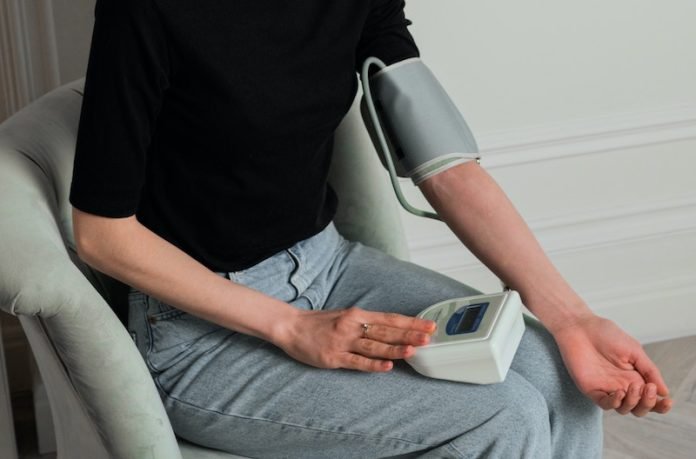
High blood pressure, also known as hypertension, is a common condition that affects millions of people worldwide.
It occurs when the force of blood pushing against the walls of the blood vessels is consistently too high.
Over time, this can cause damage to the blood vessels and organs such as the heart, kidneys, and brain.
Understanding the causes of high blood pressure is essential in preventing and managing this condition.
Genetics: A person’s genetic makeup can play a significant role in their likelihood of developing high blood pressure. In some cases, hypertension can be inherited from one or both parents.
Age: As people get older, their risk of developing high blood pressure increases. This is because the blood vessels become stiffer and less elastic, making it harder for blood to flow through them.
Weight: Being overweight or obese can increase the risk of developing high blood pressure. This is because excess weight puts extra strain on the heart and blood vessels.
Lifestyle factors: Certain lifestyle factors such as a lack of physical activity, smoking, and excessive alcohol consumption can increase the risk of developing high blood pressure. These habits can contribute to the buildup of plaque in the arteries, leading to high blood pressure.
Sodium intake: Eating a diet high in sodium can increase the risk of developing high blood pressure. This is because sodium can cause the body to retain fluid, which can increase blood pressure.
Stress: Stress can cause temporary spikes in blood pressure, and chronic stress can contribute to long-term high blood pressure. This is because stress hormones can constrict blood vessels and increase the heart rate.
Sleep apnea: Sleep apnea is a condition where a person’s breathing is interrupted during sleep. This can cause the body to release stress hormones, leading to an increase in blood pressure.
Kidney disease: The kidneys play a crucial role in regulating blood pressure. If the kidneys are damaged or not functioning correctly, this can lead to high blood pressure.
Hormonal imbalances: Hormonal imbalances such as an overactive thyroid or adrenal gland can contribute to high blood pressure. These conditions can cause the body to produce too much of certain hormones, leading to an increase in blood pressure.
Medications: Certain medications, such as nonsteroidal anti-inflammatory drugs (NSAIDs), steroids, and some antidepressants, can contribute to high blood pressure. It is important to speak with a doctor or pharmacist about the potential side effects of any medication.
Understanding the causes of high blood pressure is important in preventing and managing this condition.
Lifestyle changes such as maintaining a healthy weight, reducing sodium intake, increasing physical activity, and managing stress can all help to lower blood pressure.
In some cases, medication may be necessary to manage high blood pressure.
It is important to monitor blood pressure regularly and speak with a doctor about any concerns. High blood pressure is often called the “silent killer” because it often has no symptoms.
Regular blood pressure checks can help to detect high blood pressure early and prevent complications.
If you care about blood pressure, please read studies about unhealthy habits that could increase high blood pressure risk, and eating eggs in a healthy diet may reduce risks of diabetes, high blood pressure.
For more information about blood pressure, please see recent studies that early time-restricted eating could help improve blood pressure, and results showing common snack may lead to high blood pressure, heart rhythm disorder.
Copyright © 2023 Knowridge Science Report. All rights reserved.



